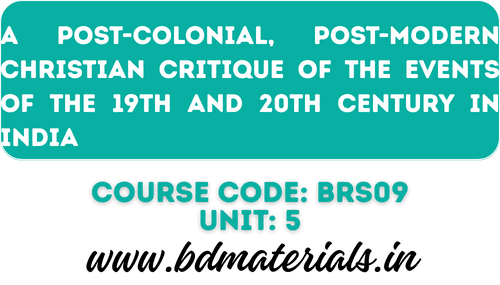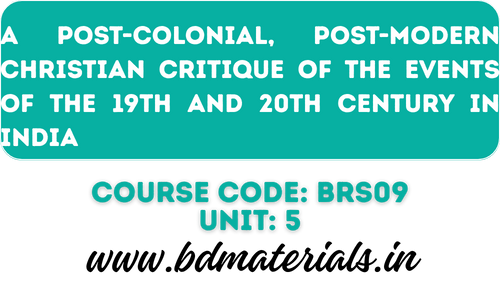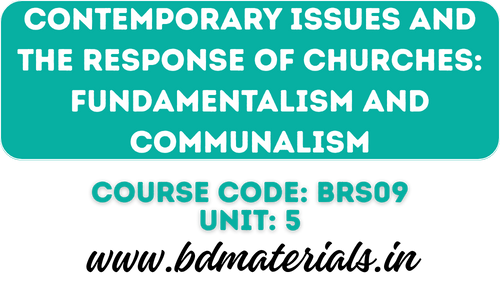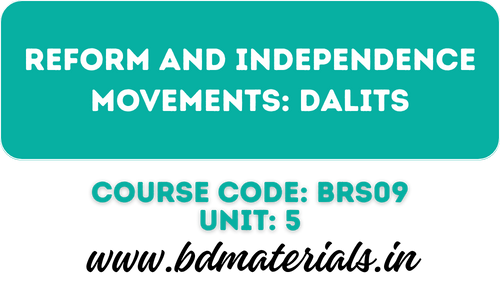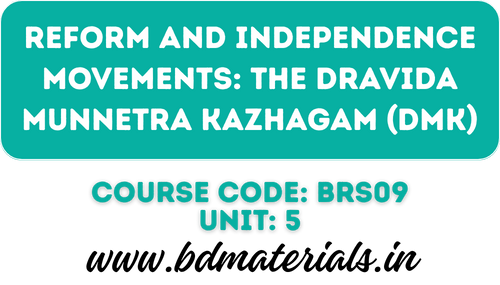Religio-Political and Secular Movements: Muslim League
History
In general, the Muslim community from the beginning opposed Western education, culture and rule because the British government deprived the Moghul rule since their arrival. Taking this as an advantage, the British adopted the policy of “divide and rule”. However, the British government was alienated from Hindus when the spirit of nationalism increased and favored Muslims, so they encouraged Sir Syed Ahmad and supported his reforms through the Mohammedan Anglo-Oriental College of Aligarh. Syed promoted Western Education and Modern culture among Muslims. He succeeded in changing the attitude of Muslims towards British rule. Syed opposed the Indian National Congress, and suggested Muslims keep aloof from it. It is an undeniable fact that a strong section of the Muslims from the very beginning adopted an unsympathetic attitude towards Congress.
Syed set up three organizations as rival organizations: 1. Educational Congress for Muslims. 2. The United Indian Patriotic Association (with both Hindu and Muslim members). 3. Mohammedan Anglo-Oriental Defence Association of Upper India (only for Muslims and Englishmen). Mr. Beck, the principal of MAOC, influenced Syed against the national movement and suggested Muslims keep themselves under the protesting wings of the British government and keep their distance from Hindus; Syed feared the majority of Hindus and their domination if they came to rule which led to the demand of separate Pakistan.
Muslims’ full support was extended to the British government, and the government established a policy of special British favor for communalist and loyal Muslims; on October 1st, 1906, under the leadership of Agha Khan, many Muslims met the viceroy –Lord Minto, which led to the birth of Muslim League. It met first at Dacca at the end of 1906 and annually thereafter with the blessings of the British. The organization supported the partition of Bengal and opposed the boycott of British goods.
Lord Minto divinely planned the introduction of separate electorates in order to win over the Muslims and set them against the Congress. The Muslim League at first emphasized the bond of religion instead of the ‘new nationalism’. But they slowly imbibed the nationalistic spirit when their numbers increased.
Muslim-Hindu Relations
Anti-British feelings arose among Muslims in India due to the war between Turkey and Britain, and it made them cooperate with the Congress for some time. In 1916, both the Indian National Congress and Muslims League had their annual sessions in Lucknow and concluded the “Lucknow Pact,” by which the congress agreed to separate electorates, and the two organizations framed a constitutional scheme based on dominion status. In this development, Gandhi found an opportunity to unite the Muslims and Hindus, which led to the unprecedented fraternization between Hindus and Muslims. There was a setback due to mob violence in Chauri Chauran, which adversely affected Hindu-Muslim relations. There were those who sowed seeds of discord between the two communities. A series of communal riots broke out in 1923. It has become a regular feature of Indian political life ever since. The Muslim League grew in power and revived the old ideas of Sir Syed Ahmad Khan.
Differences between Congress and the Muslim League
Different parties and communities came together due to the boycott of the Simon Commission and the frame of a constitution for India. The All-Party convention met towards the end of 1928, but they could not agree to the claims made by Jinnah on behalf of the Muslims. He then went over to the side of the Muslims who did not agree with the Congress. All-India Muslim conference met and issued a manifesto of Muslim claims. In 1937, the Muslims desired a coalition ministry with Congress in every province, but Congress refused, which widened the gulf between the two parties. Jinnah publicly said that” Muslims can expect neither justice nor fair play under congress government”. The majority of the Muslims shared this view and supported Jinna to continue as the President of the League for many terms.
Jinnah repudiated the democratic system of government, as neither minority safeguards nor separate electorates could save the Muslims from the Congress Raj at the center; Jinnah declared in January 1940 that the Hindus and Muslims should form two separate nations. Further, in the Lahore Session of the Muslim League in March 1940, he stated that the Muslim nation must have a separate independent State. In other words, he advocated the establishment of Pakistan, but after that, there was no reconciliation between the Congress and the Muslim League.
Differences in Government Formation
Three members of the British Cabinet came in March 1946 “to promote, in conjunction with the leaders of Indian opinion, the early realization of all self-government in India”. It became difficult to convince the Muslim League, so the cabinet mission recommended a federal type of government for the whole of India or the establishment of an interim National government. The Muslim League accepted, but the Congress rejected the proposal for an interim government. Then, the Muslim League withdrew its acceptance of the cabinet mission plan, so the Viceroy reconstituted his council with congress members only. This provoked the Muslim League, and they went into direct action on August 16th, 1946, which resulted in a communal riot in Calcutta. The British government declared its intention to quit India by June 1948 and appointed Lord Mountbatten as Viceroy of India to arrange for the transfer of authority from British to Indian hands. People all over India rejoiced, except the members of the Muslim League. Once again, they resorted to direct action, and there were communal riots in Northwest India. Jinnah was chosen as the first Governor General of Pakistan, and soon, it took steps to summon its constituent assembly. Thus, Pakistan came into existence. “Pak” is the Persian word for “pure” or “holy.” Pakistan means “the pure or holy land.
Evaluation
Gandhi stood for national unity, while Jinnah stood for communal integrity and national disunity. Mountbatten called Jinnah a bastard, a dolt, a psycho-pathic and hopeless case, a one-man band”. Jinnah was not well acquainted with the tenets of Islam and made religion the instrument for his political aspirations, hence opening the way for the politicization of religion and criminalization of politics. He attained such a position and was popularized only through the Muslim League.
Friendly Note
Bachelor of Divinity Materials is your go-to resource for comprehensive Biblical studies, supporting students in Bachelor of Divinity (B.D.) and other theological courses. Our platform offers access to the full syllabus, detailed answers, and a vast collection of assignments, study guides, articles, and research papers to help you excel academically.
We provide downloadable PDFs of study materials, including books and journals, for convenient learning anytime, anywhere. Whether preparing for exams or conducting research, our resources cater to both students and scholars in biblical studies.
Committed to empowering theological learners, we aim to deliver high-quality, authentic study materials. Explore Bachelor of Divinity Materials to deepen your understanding of God’s Word and Christian doctrine, making it a valuable resource for aspiring ministers and anyone dedicated to theology.

